
Conjunction-adverbs in German (Konjunktionaladverbien)
In German, the
Konjunktionaladverbien are very interesting. They are adverbs that share properties of conjunctions. This type of word creates a bit of confusion among people trying to learn German. We’ll try and explain this in a way that is understandable:
Grammar
The two properties of a
Konjunktionaladverb are:
- It occupies a position in the clause (like an adverb)
- They associate clauses with one another (like a conjunction)
Die Zimmer sind klein. Trotzdem ist das Hotel für den Preis zu empfehlen
The rooms are small. Nevertheless, the hotel is recommended for the price.
Pay attention to the construction: The verb “ist ( sein)” is in the second position. This is because “Trotzdem”, which gives order to the sentence, is behaving like an adverb by occupying the first position in the sentence.
Another possibility is to place the
Konjunktionaladverb in the middle of the sentence (position 3).
Die Zimmer sind klein. Das Hotel ist trotzdem für den Preis zu empfehlen
The rooms are small. The hotel, nonetheless, is recommended for the price
List of the most common Konjunktionaladverbien
| Adverbs |
Meaning |
| allerdings |
however, nonetheless |
| auch |
also |
| außerdem |
in addition |
| daher |
|
| darum |
|
| deshalb |
therefore, that’s why |
| deswegen |
therefore, that’s why |
| doch |
so |
| gleichfalls |
likewise |
| nur |
only |
| so |
so |
| somit |
hence, therefore |
| sonst |
or else |
| zudem |
in addition |
| trotzdem |
however, nonetheless |
allerdings
It means “however,” “nonetheless,” or simply “but” when it acts as a
Konjunktionaladverb
Ich habe Geschichte studiert, allerdings habe ich keinen Abschluss
I studied history but I didn’t finish
Take note that when it is simply acting as an adverb it has another meaning: “of course (as a response)” or “naturally”
Ich habe allerdings keine Lust noch länger zu warten
Of course I don’t want to wait even longer
auch
It means “also”
Ich habe Deutsch studiert. Auch habe ich zwei Jahre mit meiner Familie in Deutschland gewohnt
I studied German. I also lived in Germany for two years with my family
außerdem
It means “also”
Ich heiße Ana und bin 30 Jahre alt, außerdem bin ich Lehrerin und Mutter von 3 Kindern
My name is Ana and I am 30 years old. In addition, I am a professor and mother of three children
daher
It means “therefore” or “that’s why”
Ich verstehe leider kein Spanisch. Daher kann ich das Handbuch nicht lesen
Unfortunately, I don’t understand Spanish; that’s why I can’t read the manual
darum
It means “therefore” or “that’s why”
Wir haben noch keine Erfahrung. Darum ist es für uns wichtig, verschiedene Meinungen zu hören
We still don’t have experience. That’s why it is important to us to listen to different opinions
deshalb
deshalb means “therefore” or “that’s why”
Mein Mann hat momentan leider keinen Job, deshalb muss ich arbeiten
My husband doesn’t have a job at the moment, unfortunately. That’s why I have to work
deswegen
It means “that’s why”
Sie hat kein Auto, deswegen fährt sie immer mit der U-Bahn
She doesn’t have a car. That’s why she always uses the subway
doch
It means “so” or “but” or “though.” It depends greatly on the context.
Wir haben in deiner Wohnung angerufen, doch warst du nicht da
We called you at home but you weren’t there
trotzdem
It means “however”
Ich bin Deutsche, trotzdem möchte ich das Buch auf Englisch lesen
I am German. However, I would like to read the book in English.
| Coordinate
conjunctions |
Subordinate
conjunctions |
Compound
conjunctions |
| aber
beziehungsweise
denn
oder
sondern
und |
als
bevor
bis
dass
damit
nachdem |
ob
obwohl
seit
seitdem
sobald
sofern
soweit |
sowie
während
weil
wenn
wie
wo |
weder .. noch
anstatt..zu
entweder…oder
sowohl … als (auch)
sowohl … wie (auch)
je … desto
zwar … aber |
Coordinate Conjunctions (Koordinierende Konjunktionen)
The coordinate conjunctions do not modify the position of the verb in the clause. The most common ones are:
| Coordinate
conjunction |
Meaning |
| aber |
but |
| beziehungsweise |
better put
respectively |
| denn |
because
then |
| oder |
or |
| sondern |
but
but rather |
| und |
and |
aber
It means “but”.
Die Hose ist schön, aber zu klein
The pants are pretty but too small
Er ist klug, aber faul
He’s smart but lazy
Das Angebot ist super, aber wir haben keine Zeit
The offer is great but we don’t have time
beziehungsweise
It means “better put” or “respectively” and is abbreviated often as bzw.
Ein Auto habe ich beziehungsweise meine Frau hat eins
I have a car or, better put, my wife has one.
Die Disko ist heute billiger für Frauen und Männer. Es kostet 7 Euro bzw. 10 Euro.
The disco is cheaper today for women and men. It costs 7 and 10 Euros, respectively
denn
It means then/because, etc.
Ich weinte, denn ich hatte kein Geld
I cried because I didn’t have money
Synonymns: weil
oder
Means “or”
Ich weiß nicht, ob ich lachen oder weinen soll
I don’t know whether I should laugh or cry
Wer fängt an, du oder ich?
Who starts, you or me?
sondern
Means “but” or “but rather”
Das Haus ist nicht alt, sondern neu
The house is not old but new
und
It means “and”
Meine Freunde und ich wollen ins Kino gehen
My friends and I want to go to the cinema
Subordinate Conjunctions
Subordinate conjunctions help to form subordinate clauses. One of the most interesting things about German is that the verb is placed in the last position of the clause in subordinate clauses.
| Subordinate
conjunction |
Meaning |
| als |
when |
| bevor |
before |
| bis |
until |
| dass |
that |
| damit |
so that |
| nachdem |
after |
| ob |
whether
if |
| obwohl |
although |
| seitdem |
since |
| sobald |
as soon as |
| sofern |
provided that
as long as |
| soweit |
insofar as |
| sowie |
as soon as |
| während |
while |
| weil |
because |
| wenn |
if |
| wie |
how |
| wo |
where |
als
It means “when” if it is a subordinate conjunction. Careful: It’s used only in the past and when the past event only took place one time (temporal conjunction)
Als ich Kind war, wohnte ich in München
When I was a child, I lived in Munich
“Als” is also used for the construction of the comparative of superiority:
Er ist stärker als ich
He is stronger than me
bevor
It means “before” (temporal conjunction to show previous action or event)
Woran denkst du, bevor du einschläfst?
What do you think about before you fall asleep?
bis
It means “until” (temporal conjunction to show subsequent action or event) “Bis” can act as a subordinate conjunction:
Warte, bis du gesund bist
Wait until you are healthy
or as a preposition:
Bis in den Tod
until death
dass
It can be translated into English as “that” and is used to start a new subordinate clause.
Ich denke, dass die deutsche Sprache kompliziert ist
I think that the German language is complicated
dass vs das
Sometimes English speakers confuse “das” (relative pronoun) and “dass” (conjunction). The reason for this is because we use “that” for both words.
“das” is used to make relative clauses, which are used to give more information about a noun (Example: the noun “book”):
Das ist das Buch, das ich gerade lese
This is the book that I am reading
dass is to make common subordinate clauses where more information is given with a verb (Example: the verb to say)
Ich habe dir gesagt, dass er heute kommt
I told you that he’s coming today
damit
It means
“so that” (conjunction of purpose)
Ich spare, damit meine Familie einen Mercedes kaufen kann
I am saving money so that my family can buy a Mercedes
nachdem
It means “after” (temporal conjunction)
Nachdem wir aufgestanden waren, haben wir gepackt
After we got up, we packed our bags
ob
It means “whether/if” in the context of indirect questions or to show doubt.
Er hat dich gefragt, ob du ins Kino gehen möchtest
He asked you if you wanted to go to the cinema
Common mistakes: Confusing the use of ob and wenn
obwohl
It means “although” or “even though” (concessive conjunction)
Ich mag Kinder, obwohl ich keine habe
I like kids even though I don’t have any
seit
It means “since” (temporal conjunction). Seit can act as a subordinate conjunction:
Ich wohne in Köln, seit ich geboren bin
I’ve been living in Cologne since I was born
or as a preposition (seit + Dative):
Er wohnt jetzt seit 2 Jahren in diesem Haus
He’s been living in this house for two years
seitdem
It means “since” (temporal conjunction)
Ich habe keine Heizung, seitdem ich in Spanien wohne
I haven’t had heating since I’ve been living in Spain
sobald
It means “as soon as” (temporal conjunction)
Ich informiere dich, sobald ich kann
I’ll inform you as soon as I can
sofern
It means “as long as” (temporal conjunction)
Wir versuchen zu helfen, sofern es möglich ist
We will try to help as long as it’s possible
soviel
It means
“as much as” or
“for all”
Soviel ich weiß, ist sie in Berlin geboren
For all I know, she was born in Berlin
soweit
It means “as far as”
Soweit ich mich erinnern kann, war er Pilot
As far as I remember, he was a pilot
sowie
It means “as soon as”
Ich schicke dir das Dokument, sowie es fertig ist
I’ll send you the document as soon as it’s finished
während
It means “while” or “during” (temporal). While can act as a subordinate conjunction:
Während ich studierte, lernte ich auch Deutsch
While I was studying, I was also learning German
or as a preposition (während + Genitive):
Während meiner Jugendzeit war ich in Basel
During my youth I was in Basel
weil
It means
“because” (causal conjunction)
Sie arbeitet heute nicht, weil sie krank ist
She doesn’t work today because she’s sick
Synonyms: denn
wenn
It means “if” but only in certain cases. For example: “If you want to go with us, you can.” Expressing doubt would require “ob”. For example: ” I don’t know if you’d like to come with us.” It also means “whenever” (conditional conjunction)
Wenn du möchtest, kannst du Deutsch lernen
If you want, you can learn German (context of “if” or “in case”)
Wenn ich singe, fühle ich mich viel besser
If I sing, I feel much better (context of “whenever I sing…”)
Common mistakes: Confusing the use of “wenn” and “ob”.
wie
It means
“how” (modal conjunction):
Ich weiß nicht, wie ich es auf Deutsch sagen kann
I don’t know how to say it in German
or for expressions of equality:
Peter ist so dünn wie Tomas
Peter is as thin as Tomas
wo
It means “where” (local conjunction)
Ich weiß nicht, wo er Deutsch gelernt hat
I don’t know where he learned German
Compound Conjunctions
Compound conjunctions are formed by 2 words:
| Compound
conjunction |
Meaning |
| anstatt … zu |
instead of
[subordinate] |
| entweder … oder |
either… or
[coordinate] |
| weder noch |
neither… nor
[coordinate] |
| weder noch |
as well as
[subordinate] |
| sowohl … als (auch) |
as well as
[subordinate] |
| sowohl … wie (auch) |
as well as
[subordinate] |
anstatt…zu
It means “instead of”
Ich würde 2 Wochen am Strand liegen, anstatt zu arbeiten
I would be lying on the beach for 2 weeks instead of working
entweder…oder
It means “either… or”
Entweder bist du Teil der Lösung, oder du bist Teil des Problems
Either you’re part of the solution or you’re part of the problem
Die Hose ist entweder schwarz oder rot
The pants are either black or red
weder…noch
It means “neither… nor”
Weder du noch ich haben eine Lösung
Neither you nor I have a solution
sowohl … als (auch)
It means “as well as”
Ich habe sowohl schon einen Mercedes als auch einen Audi gehabt
I have had a Mercedes as well as an Audi
sowohl … wie (auch)
It means “as well as”
Ich habe sowohl ein Auto wie auch ein Motorrad
I have a car as well as a motorcycle
]]>
 Direct and indirect questions
Direct and indirect questions




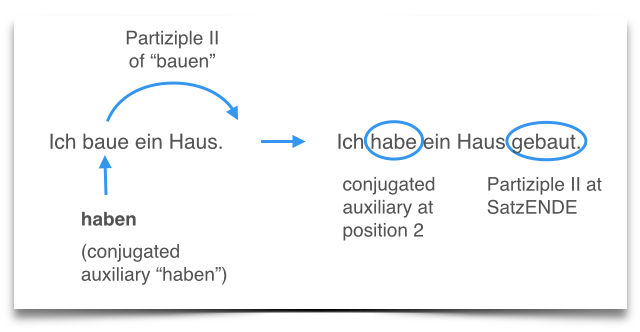
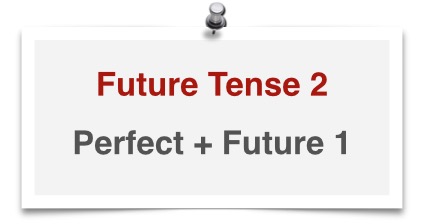
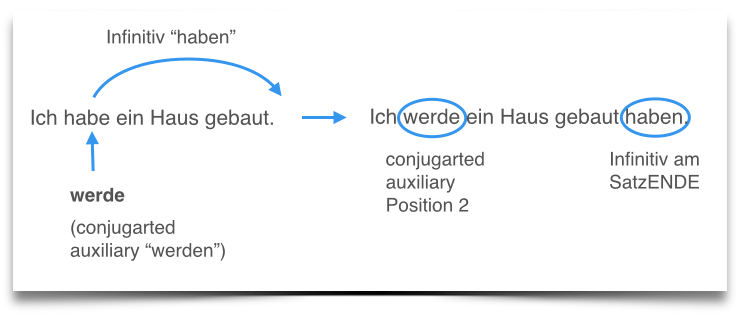
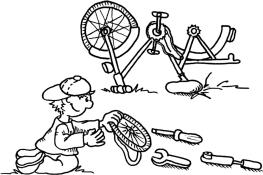






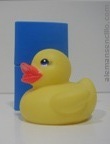
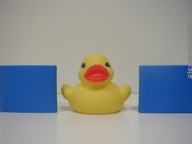
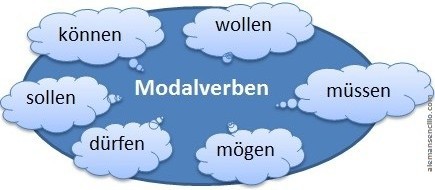 Verbs in German (die Modalverben)
Verbs in German (die Modalverben)

 There are also adjectives and participles that are often used to introduce a zu-construction. The adjectives must be used in combination with the verb sein. Often the subject es is used in the introductory clause, as a general statement is being made.
There are also adjectives and participles that are often used to introduce a zu-construction. The adjectives must be used in combination with the verb sein. Often the subject es is used in the introductory clause, as a general statement is being made.
 There are also several noun-verb combinations that are often used to introduce zu-constructions.
There are also several noun-verb combinations that are often used to introduce zu-constructions.
 In conclusion, zu-constructions are a useful and common way of adding additional information to a sentence without the need to repeat the subject. The introductory clauses are very useful to learn, so that you have set phrases for speaking German.
In conclusion, zu-constructions are a useful and common way of adding additional information to a sentence without the need to repeat the subject. The introductory clauses are very useful to learn, so that you have set phrases for speaking German.


